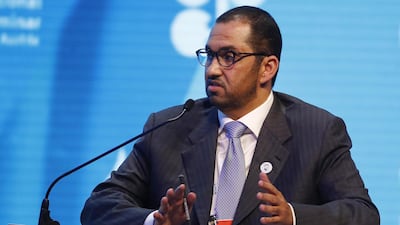Opec has reached an agreement in principle to boost oil production, achieving a last-minute compromise that overcame Iran’s threats to veto any supply hike.
The preliminary accord allows for an additional 600,000 barrels a day of oil to flow onto the market, about 0.5 per cent of global supply, said a delegate. That reflects a one million barrel-a-day adjustment on paper to the production cuts implemented by the Organisation of Petroleum Exporting Countries and its allies, the delegate said, asking not to be named because the information is private.
The actual increase will be smaller because several members are unable to raise output.
The new deal would effectively roll back the deeper-than-intended cuts from nations such as Venezuela, returning the curbs back to the level originally agreed in 2016, the delegate said.
The final wording of the deal is still under discussion.
_____________
Read more on Opec
Opec nears compromise on supply boost after Saudi-Iran talks
Opec's Vienna meet could prove bullish for oil markets, say analysts
Opec's new game as rivalries surface over oil production
Business Extra podcast: Russia, Saudi Arabia and the state of oil markets
_____________
The accord is a much-needed show of unity after Iranian oil minister Bijan Namdar Zanganeh walked out of a meeting on Thursday evening, predicting that Opec wouldn’t be able to convince him to back an increase.
Mr Zanganeh met with Khalid al-Falih, his Saudi counterpart, for private talks on Friday morning before the full Opec meeting.
Tehran had bridled at complaints on Twitter by US president Donald Trump that the cartel was artificially inflating oil prices, which touched $80 a barrel last month.
Mr Zanganeh has said the president is to blame for high prices because of his unilateral withdrawal from the international nuclear agreement and the imposition of fresh sanctions that could significantly curb Iran’s crude exports.










